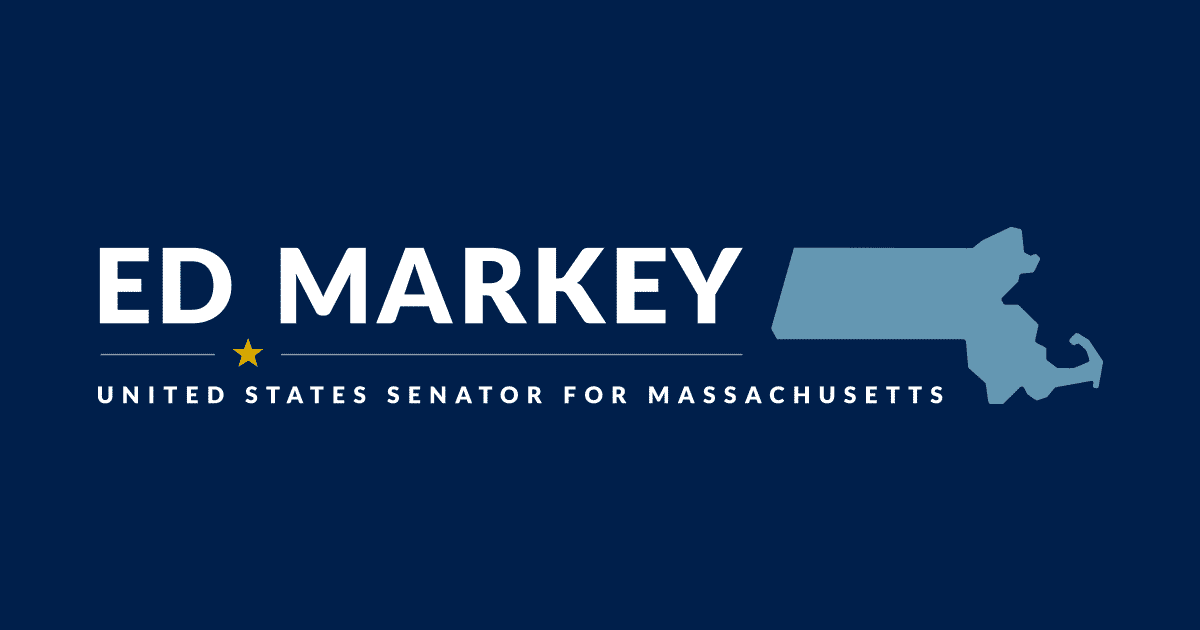Source: United States Senator for Massachusetts Ed Markey
In March 2020, SAMSHA and DEA instituted regulatory flexibilities that allow for easier access to medication-assisted treatment
Washington (July 29, 2021) — Senators Edward J. Markey (D-Mass.), Elizabeth Warren (D-Mass.), and Rep. Ann McLane Kuster (NH-02) led a group of colleagues in a letter to the Biden administration today calling for the continuation of pandemic regulatory flexibilities for opioid treatment providers that were instituted in March 2020 at the onset of the COVID-19 pandemic. Specifically, the letter calls on the Substance Abuse and Mental Health Services Administration (SAMHSA) and the Drug Enforcement Administration (DEA) to maintain telehealth flexibilities on medication-assisted treatment (MAT) for opioid use disorder (OUD) and to continue allowing expanded use of take home methadone. The letter also calls on the Administration to explore further regulatory reductions on MAT to help improve access to substance use treatment.
The lawmakers note that the regulatory flexibilities implemented by SAMHSA and DEA in response to COVID-19 improved the accessibility of MAT, reducing the need for patients to make frequent visits to OTP clinics and making it easier for patients to adhere to treatment regimens.
“MAT is proven to be safe and effective; studies show MAT reduces opioid use, opioid overdose deaths, criminal activity, and transmission of infectious diseases,”the lawmakers wrote in their letter. “MAT continues to be underutilized in part due to regulations that require patients to make frequent trips to OTP clinics to receive their medication. This makes it more difficult for patients in rural areas, patients who work, or patients discouraged by stigma to adhere to MAT regimens. Furthermore, these barriers exacerbate existing racial and socioeconomic disparities in access to substance use disorder treatment…We urge the Biden-Harris administration to maintain these regulatory flexibilities and to use the opportunity provided by the COVID-19 pandemic to examine ways to further reduce barriers to MAT.”
MAT is the use of medications, often in combination with behavioral health counseling, to treat OUD and to help individuals sustain recovery. There are currently three Food and Drug Administration approved drugs for use in the treatment of OUD: methadone, buprenorphine, and naltrexone. SAMHSA and DEA oversee and regulate the use of methadone and buprenorphine for drug treatment.
Senators Tammy Baldwin (D-Wisc.), Cory Booker (D-N.J.), and Sheldon Whitehouse (D-R.I.), and Representatives Lori Trahan (MA-03), David Trone (MD-06), and Lisa Blunt Rochester (DE-AL) also signed the letter.
“Effective, evidence-based addiction treatments continue to be underutilized despite drug overdose deaths surging to an all-time high during the COVID-19 pandemic,” said William F. Haning, MD, DLFAPA, DFASAM, President of the American Society of Addiction Medicine. “To turn the tide and ultimately save lives, it is critical to remove barriers to care and make permanent regulatory flexibilities that increase access to medications for addiction treatment.”
“Our understanding of addiction as a chronic disease has changed in the last five decades, but federal methadone regulations have remained unchanged, rigid, and not based in science. The changes made in March of 2020 allowed doctors to treat patients as individuals and broke the “liquid handcuffs” of methadone. Losing that flexibility would be a very dangerous step backwards at a time when barriers to methadone treatment need to be reduced,” said Dr. Ruth Potee, Medical Director of the Opioid Task Force of Franklin County and the North Quabbin Region.
